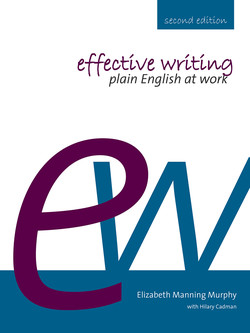Читать книгу Effective Writing - Elizabeth Manning Murphy - Страница 26
На сайте Литреса книга снята с продажи.
3.8 Plurals of compounds
ОглавлениеThere are ‘rules’ – more strictly observed than ‘conventions’ – in English for the treatment of compounds. If a compound contains one or more nouns, the principal noun takes the plural marker; thus, we have attorneys-general, editors-in-chief, brothers-in-law. If the compound does not contain a noun, the plural marker goes at the end of the whole compound, as in sing-alongs, fill-ins, walk-ons. There are exceptions to these rules, as there are to many ‘rules’ in English – for example, it is now debatable whether one should write attorneys-general or attorney-generals. Spoken English changes all the time, and it takes written rules a while to catch up. So, we might be comfortable saying something that we would still hesitate to put into writing. A good guide to follow when such dilemmas occur is ‘Err on the conservative side until you are sure that the innovation is acceptable’. One such innovation (though not a compound) is singular they, them, their: it seems natural now to say ‘Anyone (singular) who has not paid their subscription will be removed from the list of members’ to avoid the cumbersome his/her or even just his, assuming that this masculine pronoun also includes the feminine.
